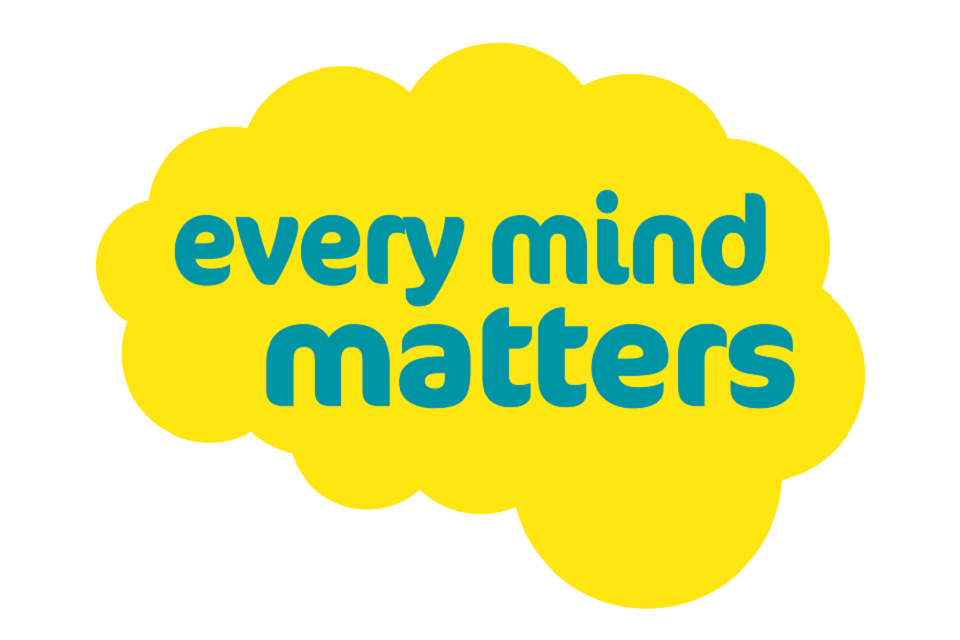
In October 2019, the Every Mind Matters (EMM) website and social marketing campaign was launched in England, with the aim of improving adults’ mental health literacy, or the knowledge and skills on how to improve mental health and help others (Farrell, 2020).
The website was government-funded by Public Health England (PHE) in response to the considerable and rising mental health needs in the country and aimed to reach at least one million adults over three years.
The website includes information about:
- Four common mental health problems (anxiety, low mood, sleep, stress)
- Possible causes
- Self-help recommendations
- Guidance for helping others with mental ill-health
- How to seek urgent support.
Every Mind Matters also includes ‘Your Mind Plan’, a quiz designed to generate a personal self-help plan to support individuals with their mental health.
Public mental health campaigns use considerable public resources, so it is important to evaluate whether they are effective, ineffective, or even cause harm (and therefore shouldn’t continue to be funded). Despite this, evaluations of campaigns are rare, particularly ones that report more than exposure to campaign materials.
This blog reports on a study by Stuart et al. (2023), one of four that have been designed to evaluate Every Mind Matters. Using qualitative methods, the authors aimed to investigate experiences of using the website and any barriers to use, which would compliment other studies quantifying changes in mental health literacy and the cost-effectiveness of the campaign.

Public mental health campaigns like Every Mind Matters use considerable resources, so it is important to evaluate their effectiveness and whether they should continue to be supported.
Methods
The study interviewed 20 adults in England and asked them about their experiences of the campaign and use of the online resources, using a semi-structured interview guide. Most participants were recruited via the Every Mind Matters website, while 6 were recruited from a previous study with mental health service users. This second sample was included after consultation with a lived experience working group, who said it would be beneficial to capture the experiences of those whose mental health needs were beyond what Every Mind Matters was designed to support.
Interviews were conducted via videoconferencing or phone and lasted between 28-78 minutes. Interview transcripts were analysed thematically using a combined inductive-deductive approach by a team of researchers, which included three members with lived experience of mental health difficulties.
Results
Descriptive findings
Out of the 20 participants, most were female and White British, but there was a mix of ages and geographic locations. Of interest:
- 12 reported experiencing trauma
- 11 reported feelings of isolation
- 10 identified as having a long-term health condition
- 8 reported unstable employment or unemployment
- 7 were parents
- 6 identified as having a disability
- 5 identified as LGBTQI
Only 5 participants reported no mental health condition, and there was a mix of diagnoses reported, including anxiety (n = 5) and several severe mental disorders (e.g., psychosis, bipolar disorder, personality disorder). Almost all who used the website were searching for help for themselves, rather than to learn more about mental health or how to support someone else. Use of the website varied from visiting once or twice through to more than 50 times.
Qualitative findings
Participants reported positive, neutral and negative experiences with Every Mind Matters, with four broad themes identified:
- User-friendliness: The Every Mind Matters website was experienced as user-friendly. Participants appreciated the appealing visuals, well-designed layout, mix of text and videos to present information, and easy to understand language. The only concern was the tone of language for younger people.
It was very easy to use. The page was easy on the eyes and I’m very happy to use the page again.
- Every Mind Matters as a personal experience: Participants were positive about the interactive ‘Your Mind Plan’ quiz, which was seen as an effective tool to engage users, particularly with the opt-in follow-up emails. There were mixed views on the option to edit the plan with alternative suggestions, especially if all suggestions were unhelpful. Participants reported that they felt supported and less alone from using the website, with 24/7 access being seen as reassuring. Every Mind Matters helped participants to take action and improve their wellbeing; and even if participants didn’t follow the suggested ideas, it was still experienced as validating.
…having regular emails that are checking in on you and making sure that you haven’t forgotten the plan was really, really useful. And I felt like the website was a bit more personal and interactive than other resources that I’ve used.
- Acknowledgement of contexts: Despite the positives, there was frustration that Every Mind Matters lacked attention or recognition of contexts that presented barriers to improving their mental health. These included personal contexts (e.g., living situations, health conditions, psychological and practical barriers), socio-political contexts (e.g., climate change, unequal impact of COVID-19), and health system contexts (e.g., previous experiences seeking help, lack of support available). There was also disappointment in Every Mind Matters only targeting certain mental health conditions.
It sort of put all the responsibility for my feelings and experiences on me, and it wasn’t about my condition, or it wasn’t about my circumstances […] Oh, you can help yourself in this way, and actually you can’t always.
- Users wanting more: Users wanted more from Every Mind Matters, including more interactivity, more information, better signposting to urgent support services, and being more inclusive of people with chronic experiences and more serious conditions.
It’s a very good site for people who are like experiencing their first struggles but not so much people with chronic conditions.

Whilst participants largely expressed positivity towards Every Mind Matters, there was also frustration about the lack of attention to contexts that presented barriers to improving their mental health.
Conclusions
In-depth interviews with users of the Every Mind Matters website identified strengths as well as areas for improvement in mitigating risk of harm. As the website is available to all, it must therefore cater to all and include support for both common mental health difficulties and individuals with more severe problems, to avoid compounding feelings of exclusion and marginalisation.
Nevertheless, lived experience commentary on the study concluded that:
The Every Mind Matters (EMM) website appears to be a helpful, interactive resource aiding people to increase their mental health literacy and offering personalised self-help tools.

Individuals with lived experience commented that the Every Mind Matters website was a helpful resource that supported individuals to increase mental health literacy and knowledge of how to optimise mental health.
Strengths and limitations
Public mental health campaigns are rarely evaluated, so this research on the effectiveness of the Every Mind Matters campaign should be commended. It was also an independent evaluation, so findings are less likely to be biased towards positive experiences.
A strength of the study was the involvement of people with lived experience of mental health difficulties in the design and as members of the research team. Consultations with the researchers’ Lived Experience Working Group led to an expansion of the recruitment methods to reach people with more severe mental health conditions in order to better explore unintended impacts of the website. The potential for harm identified by these participants may have been missed without this insight from people with lived experience.
However, there were some limitations:
- Although over 500 people expressed interest in participating in the study, only 20 interviews were completed. As interviews were conducted between 10am and 6pm, this may have prevented some potential participants from taking part – for example those working full time or with caring responsibilities. It is possible this select group of participants may have different views to other Every Mind Matters users. An alternative data collection method, such as open-ended surveys, may have allowed for greater representation.
- As is typical in mental health research, there was an over-representation of women. It is unclear if this is because men preferred not to participate (all interviewers were female) or because fewer men use the website than women. Nevertheless, with only 4 men participating, the experiences of men may have been underexplored. A public mental health campaign should be inclusive of the diverse needs and experiences of men (Seidler et al., 2018).
- Although the authors reported following the COREQ criteria for qualitative research, they do not discuss data saturation, or whether participants were recruited until no new relevant knowledge was obtained. For instance, even though the website is designed to also help people support others with mental health difficulties, it is surprising that none of the sample reported this use. This could reflect the limited sample that was recruited, and arguably not all of the functions of the website were therefore explored.

A strength of the study was the consultation and involvement of people with lived experience of mental health difficulties as part of the research team, which led to the identification of unintended harms amongst Every Mind Matters users.
Implications for practice
Every Mind Matters was ultimately designed to improve population mental health via early intervention and prevention of mental ill-health. Nevertheless, this research highlights the difficulties in designing public mental health campaigns that meet everyone’s needs. Although the Every Mind Matters website was generally well received and even led to life-changing improvements for some participants, there were also unintended consequences for others.
The study does not describe in detail how the website was developed, other than by PHE with advice from Professor Stan Kutcher, who has developed school-based mental health literacy programs in Canada. Stuart and colleagues recommend that the development of future campaigns should include the views of people who may not be the core audience but will nevertheless be exposed to the campaign. This is to avoid unintended impacts. The authors make recommendations to improve the website, which if co-designed and implemented, would make it more inclusive for ‘every mind’, not just those with mild or early-onset mental health difficulties (to learn more about co-design and Patient and Public Involvement [PPI], read Layla and Laura’s blog).
While other mental health literacy campaigns promote the use of evidence-based self-help (e.g. Beyond Blue in Australia), Every Mind Matters is unique in its focus on personal and interactive content. This study suggests that a relatively simple tool that tailors information and advice to improve mental health can be beneficial. My own PhD research found that an email-based campaign of self-help messages for mild depression led to better coping strategies and mental health in participants (Morgan et al., 2012). Here too, some participants reported feeling empowered to improve their health and appreciated the advice or reminders of what to do. Nevertheless, this approach has to be balanced against overly focusing on personal responsibility and ignoring the social determinants of health, which are a powerful influence on mental health.

The development of future campaigns should include the views of people who may not be the core audience but will nevertheless be exposed to the campaign to ensure that there are no unintended harms.
Statement of interests
None.
Links
Primary paper
Stuart, R., Shah, P., Olive, R. R., Trevillion, K., & Henderson, C. (2023). Experiences of Every Mind Matters, Public Health England’s adult mental health literacy campaign: a qualitative interview study. BMC Public Health, 23(1), 398.
Other references
Beyond Blue (2023). Beyond Blue: 24/7 support for anxiety, depression, and suicide prevention.
Farrell, S. (2020). Every Mind Matters. Public Health England.
Mofrad, L., & Hemming, L. (2022). Power, equality, diversity and systemic change: the theory, barriers and enablers for patient and public involvement. The Mental Elf.
Morgan, A. J., Jorm, A. F., & Mackinnon, A. J. (2012). Email-based promotion of self-help for subthreshold depression: Mood Memos randomised controlled trial. The British Journal of Psychiatry, 200(5), 412-418.
NHS (2023). Every Mind Matters.
Seidler, Z. E., Rice, S. M., River, J., Oliffe, J. L., & Dhillon, H. M. (2018). Men’s Mental Health Services: The Case for a Masculinities Model. The Journal of Men’s Studies, 26(1), 92–104.
Photo credits
- Photo by Matthew Ball on Unsplash
- Photo by Firmbee.com on Unsplash
- Photo by Glenn Carstens-Peters on Unsplash
- Photo taken from gov.uk as part of Every Mind Matters
- Photo by KOBU Agency on Unsplash
- Photo by CHUTTERSNAP on Unsplash
